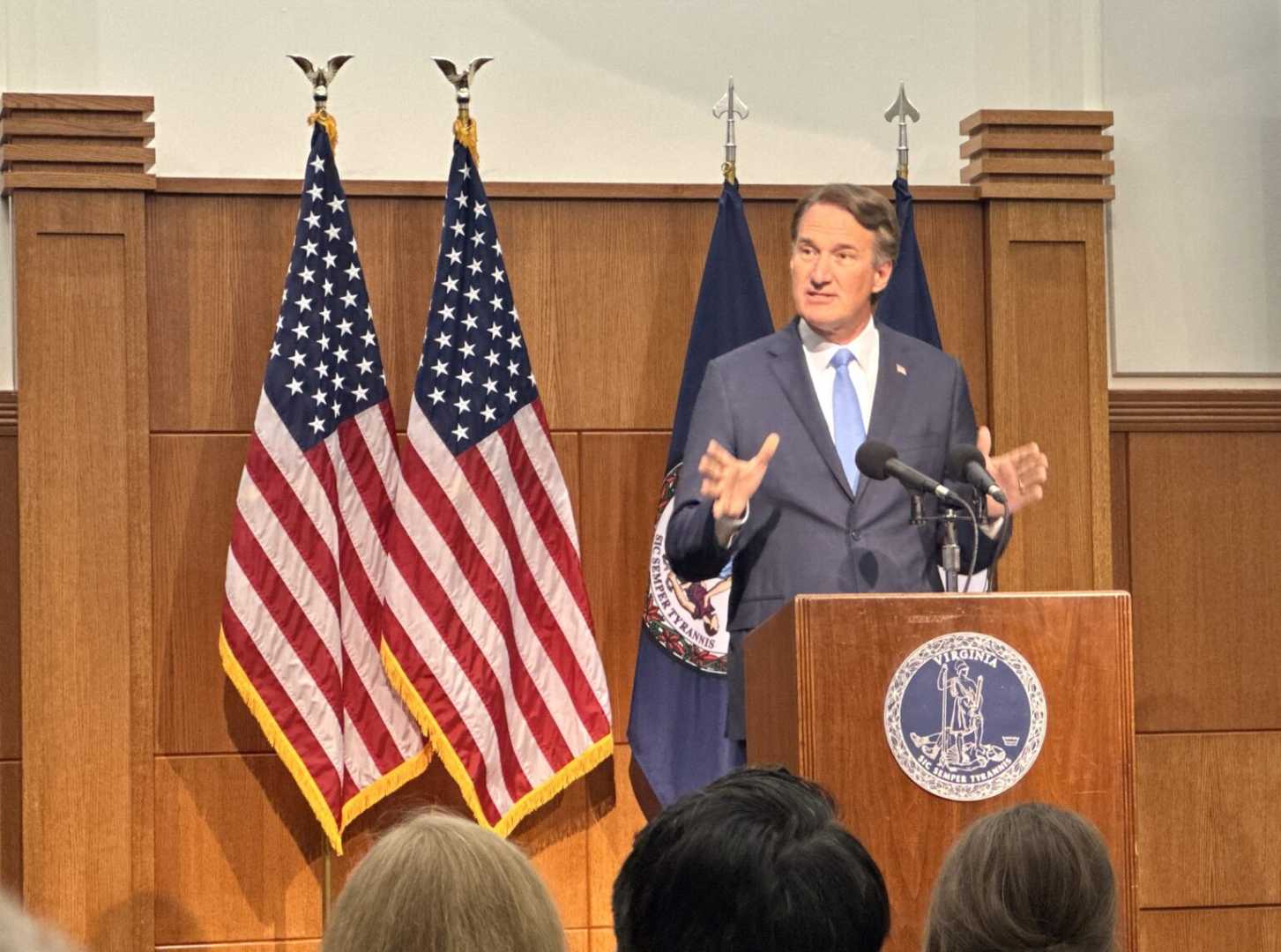Politics
Governor Youngkin Vetoes Bipartisan Solar and Energy Storage Bills

RICHMOND, Va. – Governor Glenn Youngkin has vetoed two bipartisan bills aimed at boosting small solar projects and energy storage in Virginia. The bills received wide support from both sides of the aisle, as well as endorsements from Dominion Energy, environmental organizations, and agricultural representatives.
The legislation was designed to promote solar initiatives in private homes and businesses and enhance Dominion’s capacity to harness renewable energy for future use. In an April application, Dominion projected significant savings from increased solar production, estimating billions of dollars in fuel cost reductions by 2035.
Youngkin has positioned himself as an “all-of-the-above” energy proponent, endorsing both fossil fuels and renewable sources. However, critics argue that his recent vetoes undermine his commitment to clean energy and signal a disregard for the Virginia Clean Economy Act (VCEA), a landmark initiative aimed at decarbonizing the state.
His office cited concerns that increasing solar production would unfairly burden existing utility ratepayers reliant on fossil fuel sources. “He does not support legislation that puts ratepayers at risk,” said Peter Finocchio, Youngkin’s press secretary.
In discussing battery storage, Youngkin criticized the expense of such technologies, stating that utilities should prioritize cost-effective solutions. “If utilities believed it the best technology to meet demand, they would actively seek permission to build them,” he asserted in a statement.
Josephus Allmond, a staff attorney at the Southern Environmental Law Center, voiced disappointment with Youngkin’s vetoes, stating that they reflect a pattern of undermining the VCEA and clean energy progress in Virginia. “It’s disappointing that the governor chose to engage with this legislation in such an unserious way,” he said.
The rejected bills were sponsored by Del. Katrina Callsen (D-Charlottesville) and Sen. Schuyler VanValkenburg (D-Henrico), who argued that such legislation would diversify the state’s energy portfolio. Callsen described the veto as a prioritization of political motives over the interests of Virginians.
Under the proposed statutes, Dominion would have ramped up its procurement of renewable energy credits, thus expanding its initiatives for solar power. These credits are required to increase in value from 1 percent to 5 percent aimed at supporting small solar projects by 2028.
Supporters emphasized that diversifying energy sources through these initiatives could enhance reliability and reduce costs for consumers. Jim Purekal, a director at Advanced Energy United, noted that individual solar projects would not force extra costs onto neighbors but would benefit the broader grid.
The second bill vetoed by Youngkin was a collaborative effort to increase battery storage goals for both Dominion and Appalachian Power, significantly boosting their capacity to store energy. These efforts aimed to ensure electricity availability even during times when solar and wind resources are not producing energy.
Virginia regulators had previously approved Dominion’s plans for new storage facilities, with expectations of reducing costs through expanded renewable energy use. Allmond criticized Youngkin’s calculations as exaggerated, highlighting the savings potential of investing in renewable resources.
The VCEA, which aims for carbon-free energy portfolios, has been a contentious point in Virginia politics, with Youngkin repeatedly labeling the act a “quagmire.” As the governor sharpens his focus on future campaigns, the implications of these vetoes on clean energy progress in Virginia remain a prominent concern.












